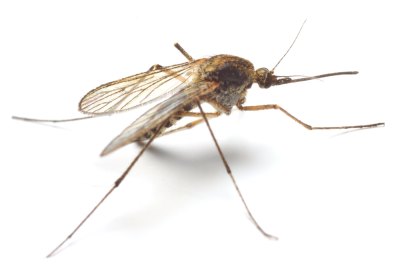Malaria kills more than a million people worldwide every year. In fact, malaria, tuberculosis and Aids together killed more people in the last 50 years, than the combined death toll of all the wars during the same time.
And the worrying thing is malaria deaths in South Africa are on the increase. This has led to the reintroduction of the use of the controversial insecticide DDT ( Dichloro-Diphenyl-Trichloroethane). The increase in malaria deaths can be ascribed to the greater incidence of chloroquine-resistant malaria, as well as to the fact that many visitors to malaria areas take insufficient precautions, or do not continue with their medication after leaving the area. Malaria is often also incorrectly diagnosed as flu.
Malaria is caused by a parasite, which the female mosquito transmits to humans. The symptoms of malaria include, nausea, fever, headaches, sweating, cold shivers and bodily aches and pains.
The most important weapon in the fight against malaria is prevention. This consists of two things – the taking of preventative medication and the prevention of mosquito bites. So what can you do to prevent malaria?
Medication
No drug therapy is 100% effective, but some of them can go a long way to preventing malaria.
Currently the drug Malarone (a combination of atovaquone and proguanil) is the drug of choice when travelling to areas and regions where chloroquine-resistant malaria exists.
The antibiotic doxycycline can also be used in areas of chloroquine resistance.
Chloroquine is generally very safe and has few side effects, but is not effective anymore in regions where the malarial parasites have become resistant to chloroquine.
Mefloquine is considered to be the best alternative to chloroquine, but should not be taken by people who have known psychiatric disorders or epilepsy.
These are the most common drugs in the fight against malaria, but it is wise to consult your doctor before making any decisions on which medication you want to take.
Other methods of prevention
It is important to apply other methods of prevention with prophylactic medication.
- Wear clothing with long sleeves and cover your ankles – especially at dawn and dusk, when mosquitoes are most active.
- Use long-lasting insecticide sprays inside homes and buildings.
- Place wire or gauze screens on all doors and windows.
- Keep a fan on in the room during the night – the current seems to put off the mosquitoes.
- Apply mosquito repellents directly to the skin.
- Use mosquito netting over the beds – these can be soaked in certain types of insecticide.
- Try and spend evenings indoors rather than outdoors, as you are much less likely to get bitten by mosquitoes.
- Blankets treated with mosquito repellents are useful.
- (Health24, updated December 2012)
(Photo of mosquito from Shutterstock)
Read more:
Malaria: all about prevention
South African malaria map
Who follows SA's lead on DDT




 Publications
Publications
 Partners
Partners















